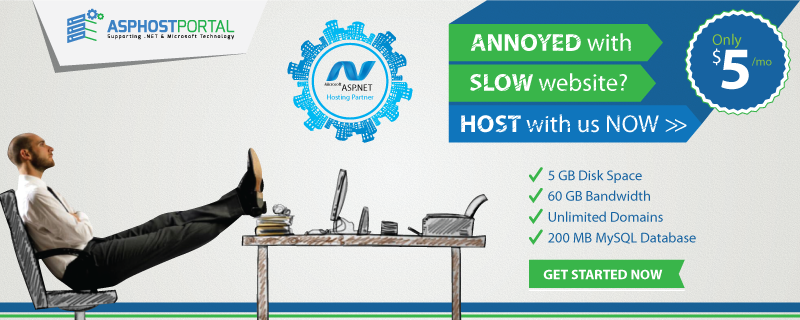When website owners think about SSL certificates (Secure Sockets Layer), they usually associate them with website security, encryption, and trustworthiness. After all, SSL certificates encrypt data exchanged between users and the website, ensuring that sensitive information, like passwords or credit card numbers, stays protected from malicious attacks. However, an often-overlooked benefit of SSL certificates is that they can also improve website speed. In fact, using SSL can contribute to faster load times and an overall better website performance.
In this article, we’ll explore how SSL certificates can positively impact the speed of your website, improving both security and performance in today’s digital landscape.
How SSL Works to Secure and Accelerate Data Transfer
SSL works through a process called SSL/TLS handshake, in which the web server and the client browser agree on a method of encryption and exchange cryptographic keys. The primary goal is to ensure that the data exchanged during a session remains private and secure.
Surprisingly, this process, when optimized, can actually speed up the website. Let’s break down the reasons why SSL contributes to faster website performance:
1. HTTP/2 Support
One of the biggest reasons that SSL can speed up your website is its support for the HTTP/2 protocol.
HTTP/2 is a major update to the original HTTP protocol, designed to improve the speed and efficiency of data transfer between the browser and the server. HTTP/2 can parallelize multiple requests over a single connection, meaning that a browser can download multiple resources (e.g., images, scripts, stylesheets) simultaneously without creating separate connections. This reduces latency and significantly boosts the loading time of web pages.
However, HTTP/2 requires encryption, which means that only HTTPS-enabled websites (those with SSL certificates) can take full advantage of this performance improvement. Websites that use HTTP/1.1, which is common for non-SSL (HTTP) sites, suffer from slower resource loading due to limited parallelization.
Thus, enabling SSL on your website allows you to leverage HTTP/2, enhancing both speed and security.
2. Reduced Latency
Latency refers to the time it takes for data to travel from the user’s browser to the server and back. The older HTTP protocol requires separate connections for each file requested by the browser, which increases latency, especially for websites with many assets.
SSL, when paired with HTTP/2, reduces latency by allowing multiplexing, a feature that enables browsers to make multiple requests over a single connection. This leads to faster page loads and reduces the number of round-trip requests made to the server, enhancing the overall browsing experience.

How SSL Improves Website Speed
Let’s break down the main ways SSL can boost your site’s speed beyond HTTP/2:
1. Session Resumption
SSL/TLS uses session resumption to reduce the load of establishing a secure connection. During the SSL handshake, the server and client exchange encryption keys, which adds overhead in terms of time and resources. However, with session resumption, the browser remembers previous encryption keys and doesn’t need to re-negotiate them on subsequent visits.
Session resumption allows a browser to reconnect securely to a server much faster than it would during the initial handshake. This drastically reduces connection times and improves repeat visit speeds for users.
2. Content Delivery Networks (CDNs)
Many websites that use SSL also employ CDNs (Content Delivery Networks) to improve speed and reduce latency. A CDN is a network of distributed servers that deliver content based on the geographical location of the user, making the website load faster for global visitors.

When you integrate SSL with a CDN, you can take advantage of secure and fast content delivery. Modern CDNs support SSL termination, meaning the SSL handshake is handled by the CDN’s edge servers. This reduces the load on the origin server and accelerates the process of delivering content, while also ensuring that the data remains encrypted and secure.
CDNs also allow for caching of frequently accessed resources like images, videos, and scripts. This further speeds up website performance since cached content is served from nearby servers, minimizing travel time for the data.
3. SPDY Protocol
SSL also enables the use of SPDY, a protocol developed by Google to reduce web page load times. While SPDY has been deprecated in favor of HTTP/2, many of its core principles—such as multiplexing and header compression—were adopted in HTTP/2. The SPDY protocol, which is only available over SSL, showed significant improvements in page load times when compared to HTTP/1.1.
With SSL, your website can use the optimized protocols like HTTP/2 or SPDY to reduce data transfer time, accelerate page rendering, and improve overall site performance.
SSL and SEO Benefits: Speed and Ranking
Website speed directly influences a website’s SEO ranking. Search engines like Google consider page speed as a ranking factor. Websites that load faster typically rank higher than slower websites, all other factors being equal. Additionally, Google has made it clear that it prefers HTTPS websites over HTTP sites by boosting the rankings of secure (SSL-enabled) sites.
Here’s how SSL impacts SEO and site speed:
- HTTPS as a Ranking Signal: Google confirmed in 2014 that HTTPS is a ranking signal in its algorithms. Although it’s a relatively minor signal compared to other factors like content relevance, SSL can still provide a noticeable SEO boost.
- Improved Speed, Improved Ranking: Since SSL supports HTTP/2 and reduces latency, the improvement in load times can lead to a higher search engine ranking. Faster websites offer a better user experience, which can result in higher user engagement, lower bounce rates, and better rankings.
- Trust and Credibility: SSL certificates also help build trust with users, which improves click-through rates and conversion rates—factors that indirectly influence your SEO ranking. Websites with HTTPS are considered more trustworthy and legitimate by both users and search engines.
SSL and Mobile Website Speed
Mobile browsing is now more prevalent than ever, and users expect fast and secure experiences on their smartphones and tablets. With Google’s mobile-first indexing initiative, mobile website performance has become even more critical for SEO and user experience.
SSL, coupled with HTTP/2 or SPDY, improves mobile website speeds by reducing the need for multiple connections and optimizing the transfer of data over mobile networks. Given that mobile connections are often slower than wired connections, reducing the number of round-trips between the client and server has a profound impact on mobile page load times.
Faster load times on mobile devices contribute to better user engagement and lower bounce rates, both of which are crucial for SEO and overall business success.
SSL for Speed and Security
While SSL is most commonly known for securing websites, its impact on website speed cannot be underestimated. By enabling support for HTTP/2, reducing latency, and facilitating faster connections through session resumption and CDN integration, SSL certificates can significantly improve your website’s load times.
The combination of enhanced security and performance optimization makes SSL certificates an essential component of a modern website. Whether your goal is to improve your SEO rankings, mobile performance, or deliver a better user experience, implementing SSL is a vital step in ensuring both speed and security for your visitors.
Investing in SSL not only boosts your site’s trustworthiness and data protection but also ensures that it performs at the level required to keep up with today’s fast-paced digital world.
ASPHostPortal Helps to Secure Your Website
We offer an extensive range of managed SSL service options to suit the needs of any size organization, be it small-scale enterprise or a large multinational corporation. Furthermore, we believe that security should be simple and easily accessible, which is why we provide a free basic SSL certificate with every hosting package we offer.
Our all-inclusive Plesk licenses make it simple to manage your SSL certificates. With just a few clicks, you can install, renew, and manage your certificates on your own. Additionally, so that you’re never caught off guard, you can always rely on us to promptly notify you when your SSL certificate is about to expire.
Our mission at ASPHostPortal is to relieve you of the burden of managing SSL certificates so you can concentrate on what really matters—managing your website and company. We guarantee that securing your site will be simple with our user-friendly Plesk, automated renewal reminders, managed SSL service, and selection of SSL certificates.

Javier is Content Specialist and also .NET developer. He writes helpful guides and articles, assist with other marketing and .NET community work



